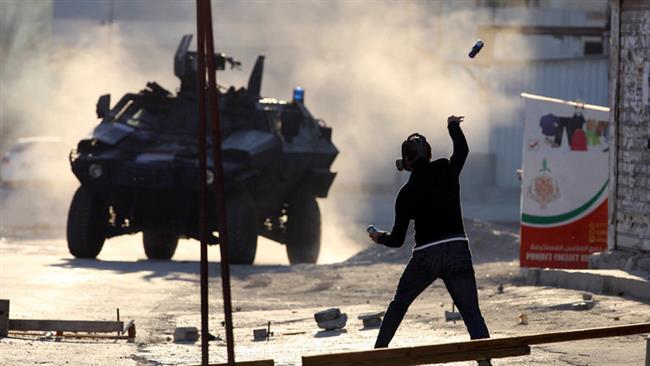(AhlulBayt News Agency) - Human rights groups have called on May to put pressure on the Manama regime over its use of excessive force against the opposition. She has asserted that the only way to solve political crises is to engage with regional countries and support their plans for reform. Press TV has interviewed two panelists to discuss Bahrain’s ongoing crackdown on opponents and the West’s silence on the issue.
Saeed Shehabi, a political activist with the Bahrain Freedom Movement, told Press TV’s program ‘The Debate’ that the Al Khalifa regime, which lacks domestic support and legitimacy, depends on its foreign backers to hold the reins of power.
“The [Bahraini] regime has no credibility. It is there simply because there are six nations that are supporting him (the monarch),” he said, naming those foreign sponsors as Saudi Arabia, the United Arab Emirates, Pakistan, Jordan, the United States and Britain.
He pointed to the shaky position of the Bahraini government, saying that if “you remove these [supporting] forces, the regime dies immediately.”
The commentator advised foreign governments against defending “dictatorial, repressive, unelected regimes” such as Bahrain’s Al Khalifa ruling family.
Criticizing British Prime Minister Thersa May for her planned visit to Manama, Shehabi said that by visiting these countries at this juncture, they (the British leaders) are not giving democracy and human rights a chance.
He urged Prime Minister May to use the opportunity to tell the Saudi, Qatari and Bahraini regimes that “in order to establish international and regional security, they need to focus on democratization,” adding that extremism derives from lack of freedom.
According to the activist, the Bahraini regime has been spending money to show that the opposition is the source of all problems, rather than “the torturers, mass murderers and those who are bringing foreign troops to occupy the country.”
He said many people across the UK and the US are lobbying for the Bahraini regime and justifying its crackdown on the opposition under various pretexts.
Shehabi also ruled out arguments that it is indeed the Bahraini dissidents who provoke the regime’s crackdown. He said it is the opposition’s job to criticize the leadership by showing the downsides of their policies, adding however that in a democratic society, dissidents are not subjected “to arrest or torture.”
“Of course rulers do not like to be criticized or to be shamed or to be provoked. But this is the nature of debate [in] any democratic situation,” he stated, noting when a ruler orders the arrest of opponents “then he becomes a dictator.”
The activist further argued, “When you have someone who is arrested because of his opinion, because of what he says, because of what he demands, then his jailors are absolute dictators. And because they are dictators, they must not be allowed to remain in power.”
He referred to individuals who are jailed as Bahraini natives, who are being “replaced by those who are brought by the ruling family from outside [the country].”
Dismissing allegations that the opposition refused to participate in a power-sharing scheme, he said, “The opposition was in the government, participated in two terms in two elections. But they realized that they could not do a single thing. They could not stop torture. They knew that [under] dictatorship you can do nothing.”
Shehabi concluded by saying that the Bahraini regime does not deserve to remain in power, because it is a “hereditary dictatorship and a tribal family” which should not govern a modern society.
Meanwhile, William Morris, an analyst with the Next Century Foundation, acknowledged that several civilians, including journalists and even two children, are currently in Bahraini jails, who “should be released. So there are issues. But nonetheless there is also a real opportunity for reform and better future for Bahrain and the opposition has to engage if they want to see a better future.”
He went on to say, “We had a real opportunity in the run-up to the last elections in Bahrain of [obtaining] some real reforms from the government. [But] some opposition elements failed to do that. They turned their back on the process [of power-sharing].”
He also said that Bahrain has the longest serving prime minister and the longest serving opposition leader in the world, adding, “I do not think that the opposition leader has served Bahrain very well.”
Defending the British prime minister’s meeting with Bahraini authorities, he noted, “We need to encourage reform in Bahrain to see that the country becomes more liberal, more inclusive, more honest and fair and more power-sharing. And we can’t do that by not talking to them.”
Since February 14, 2011, the tiny Persian Gulf country has been witness to regular anti-regime protests. The protesters want the Al Khalifah dynasty to relinquish power. The government has used a heavy-handed response to deal with the protesters, killing and injuring hundreds of people in its crackdown.
/106

